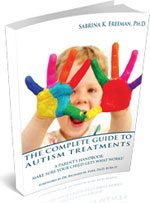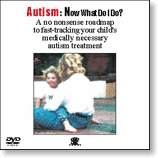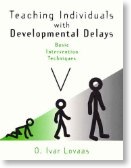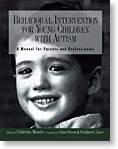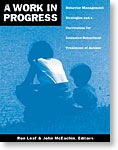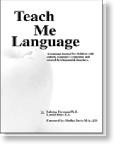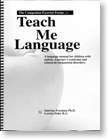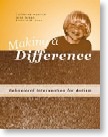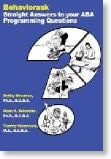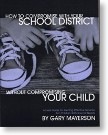Can Autism and Bilingualism Co-exist?
17/10/11 15:51
A study has just been conducted on twenty-eight children with autism, fourteen of whom are from bilingual families and fourteen who are not. From this study, the authors claim that bilingual children with autism can function “successfully” as bilingual.
At first glance we can all feel good that bilingual families don’t have to restrict themselves to only the host language; however, upon closer inspection, is this really wise? Don’t we want to make sure that the child communicates best and is easy to understand in the host culture?
The Peterson et al. (2011) study matched bilingual children (Chinese and English) with monolingual children, and tested the children over a three week period, administering four tests. Note that it is impossible to randomly assign children to bilingual or monolingual groups, so matching is the best one can do; however, that said, the matching is problematic insofar as one can never say that bilingualism caused the language delay, or did not cause the delay.
Each child in the study had an autism spectrum disorder diagnosis. In my view, the researchers should have made sure that each child had autism, and not P.D.D.NOS. The children in the study were between the ages of 3 1/2 and 6 years of age, with a mean of almost 5 years of age. Each child already had at least 30 words across both languages which means that many of the children had much more language than 30 words. What was the mean number of words that the children had? Did a couple of children statistically skew the results upward? The study does not inform on this. In addition, this study did not include children with autism that have no language, which is a large percentage of children with autism prior to inclusion in behavioral treatment programs.
In short, these researchers are claiming too broad a finding. They claim that, “The results of this exploratory study suggest that bilingualism does not negatively effect language development in young children with ASD.” I would take these results with a grain of salt. In fact, I would discount results amongst children with ASD that are not extremely high functioning. The last thing we need to do is further complicate language acquisition for children with autism by giving them twice the amount of complexity that typically developing children generally avoid.
One hopes this type of study does not lead to any sort of mandatory requirement for bilingual education for ASD children in school. This is a particular risk in countries where bilingualism is official policy and could be filed under the rubric of “the law of unintended consequences.”
At first glance we can all feel good that bilingual families don’t have to restrict themselves to only the host language; however, upon closer inspection, is this really wise? Don’t we want to make sure that the child communicates best and is easy to understand in the host culture?
The Peterson et al. (2011) study matched bilingual children (Chinese and English) with monolingual children, and tested the children over a three week period, administering four tests. Note that it is impossible to randomly assign children to bilingual or monolingual groups, so matching is the best one can do; however, that said, the matching is problematic insofar as one can never say that bilingualism caused the language delay, or did not cause the delay.
Each child in the study had an autism spectrum disorder diagnosis. In my view, the researchers should have made sure that each child had autism, and not P.D.D.NOS. The children in the study were between the ages of 3 1/2 and 6 years of age, with a mean of almost 5 years of age. Each child already had at least 30 words across both languages which means that many of the children had much more language than 30 words. What was the mean number of words that the children had? Did a couple of children statistically skew the results upward? The study does not inform on this. In addition, this study did not include children with autism that have no language, which is a large percentage of children with autism prior to inclusion in behavioral treatment programs.
In short, these researchers are claiming too broad a finding. They claim that, “The results of this exploratory study suggest that bilingualism does not negatively effect language development in young children with ASD.” I would take these results with a grain of salt. In fact, I would discount results amongst children with ASD that are not extremely high functioning. The last thing we need to do is further complicate language acquisition for children with autism by giving them twice the amount of complexity that typically developing children generally avoid.
One hopes this type of study does not lead to any sort of mandatory requirement for bilingual education for ASD children in school. This is a particular risk in countries where bilingualism is official policy and could be filed under the rubric of “the law of unintended consequences.”
